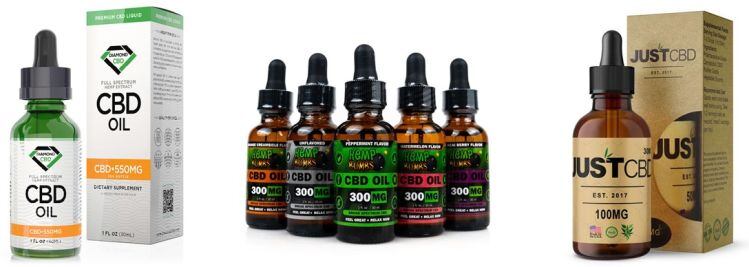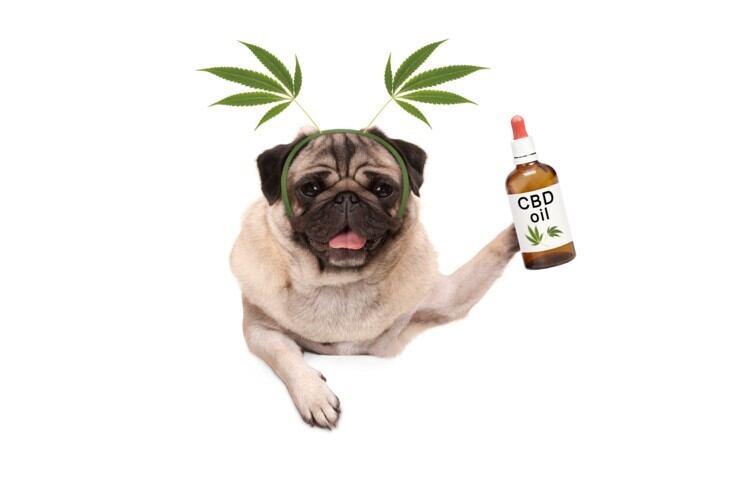The latest complaint,* filed vs Potnetwork Holdings, Inc., Diamond CBD, Inc., and First Capital Venture Co. on September 27, alleges the defendants' DiamondCBD products contain "a significantly lower amount of CBD than represented."
A similar complaint** filed vs Global Widget LLC ('Hemp Bombs') in Massachusetts on September 25 - alleges that: “Independent laboratory testing, commissioned by plaintiff’s attorney, confirms that the CBD products do not contain the amount of CBD as advertised.”
According to the lawsuit, lab testing demonstrated that “several” Hemp Bombs products contained “significantly lower levels of CBD than advertised,” with footnotes claiming some products featured between 2.6% and 35.8% of the stated CBD content, although they don’t specify which products were tested.
In a complaint*** filed vs Just Brands USA Inc., Just Brands FL, LLC., and SSGI Financial Services, Inc., in Florida on August 16, plaintiff Jesse Gaddis alleges that JustCBD products "repeatedly overstate" how much CBD they contain, with some containing "only a fraction of the CBD advertised on defendants’ website and on the products’ labeling and packaging," and some containing "no CBD whatsoever."
"For example, pursuant to independent lab testing commissioned by Plaintiff and performed by Anresco Laboratories, the JustCBD Honey Liquid Tincture, which purports to contain 100mg CBD in the bottle, actually contains just 48.92mg CBD per bottle. This represents an underfill of approximately 51%.
"As another example, the JustCBD Apple Rings Gummies, which purportedly contain 250mg CBD, in fact contain a non-detectable quantity of CBD."

Attorney: 'This could set the stage for additional similar lawsuits in various states across the country'
None of the defendants responded to requests for comment, but attorneys contacted by FoodNavigator-USA said this was potentially fertile ground for the plaintiff's bar.
Brian P. Sylvester, special counsel at Foley & Lardner LLP, said: "I think it would be reasonable to conclude that the plaintiff’s bar will be focusing more attention on CBD-infused foods and dietary supplements, and this will include scrutinizing advertised levels of CBD.
"Many states have robust consumer protection statutes for protecting consumers from false advertising and unfair trade practices. So the Hemp Bombs case bears watching as it could set the stage for additional similar lawsuits in various states across the country."
He added: "We’ve already heard from FDA that as part of their regulatory enforcement activity (i.e., warning letters issued to firms that market unapproved new drugs that allegedly contain CBD), FDA has tested the chemical content of cannabinoid compounds in some of the products, and many were found to not contain the levels of CBD they claimed to contain. Plaintiffs have taken note of these findings."
'These issues will likely culminate in a battle of experts'
So are these clear cut cases (the products either contain the stated levels of CBD or they don’t) or are there some shades of gray here? And if so, is there likely to be some back and forth over testing methodologies and the choice of laboratory?
"It’s certainly conceivable that we might see some wrangling over appropriate test methods and choice of laboratories," predicted Sylvester.
"In the absence of a detailed regulatory framework and established testing guidelines, there is likely to be some wrangling over not only the testing standards and methodologies themselves, but also other factors affecting the results such as shelf life and product degradation," added Meghana Shah, partner at Eversheds Sutherland.
"As is often the case, these issues will likely culminate in a battle of experts."
She added: "With an influx of new participants in the CBD market, it is particularly important that those manufacturers seeking staying power and longevity in this market are attentive to where their product is coming from and document their testing and labeling methodologies."
A 2017 study published in the Journal of the American Medical Association found that 70% of 84 CBD products were inaccurately labeled, containing meaningfully less or more CBD than advertised.
*Potter v Potnetwork Holdings, Inc., Diamond Cbd, Inc., And First Capital Venture Co., Case No. 1:19-cv-24017, filed in the U.S. District Court for the Southern District of Florida
**Ahumada v Global Widget LLC (d.d.a. Hemp Bombs) Case No. 1:19-cv-12005, filed in the US District Court for the district of Massachusetts, Sept 24, 2019
**Gaddis v. Just Brands USA Inc., et al., Case No. 0:19-cv-62067, filed in the U.S. District Court for the Southern District of Florida.


